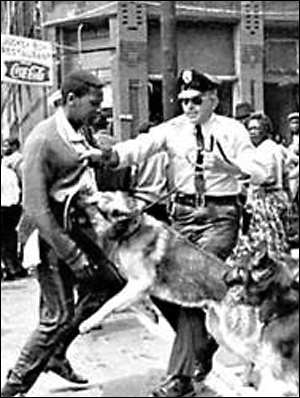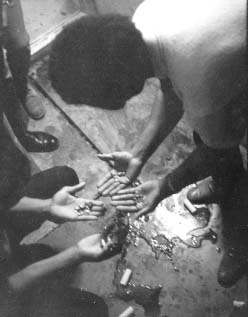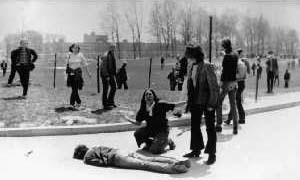America in the 1960s
|
| The 1960's were a socially and politically turbulent time for black Americans. The Civil
Rights growling of the 1950s had now become a voracious roar. The largely student-run groups like the Student Nonviolent
Coordinating Committee took an active role in the Movement, with sit-ins and other protests. While tremendous progress
was made like the Civil Rights legislation passed in 1964, this progress did not come without much violence and
death. |
 |
Among other significant events of the decade, United States President John F. Kennedy was
assassinated in 1963; the Black Panther Party was formed in 1966; Black Nationalist Malcolm X was assassinated
in 1965, as was Rev. Dr. Martin Luther King Jr. in 1968.
Growing weary of the passive resistance from earlier years, activists in the mid-to-late
1960s began to take a more aggressive and proactive approach to Civil Rights. Several race riots erupted in the
nation's major cities such as Cleveland, Chicago, Harlem, and Philadelphia as expressions of social frustration. |
| Protests of the Vietnam War (1965-1975) occurred all over the country, but particularly on
college campuses. Towards the end of the decade, student activism not only continued, but also increased dramatically.
Most tragically, student protests at Jackson State University (a predominately black institution in Mississippi)
and Kent State University in Ohio resulted in student shootings by United States National Guard troops. Among several
wounded students, four students were killed at Kent State, while two students were killed in the Jackson State
incident. |

Bullets and blood on a dorm Floor at Jackson State
|
|

Students at the Kent State Shooting
|
|
![]()